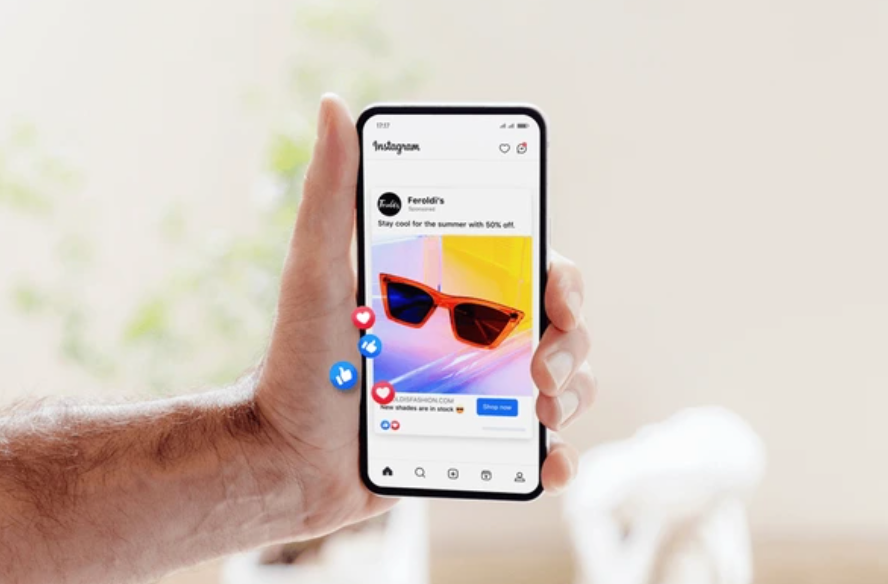Introduction: Social Media and SEO — Are They Really Connected?
It’s 2025, and digital marketing is more interconnected than ever. While search engine optimization (SEO) and social media marketing are often viewed as separate strategies, they actually influence each other in powerful ways.
This begs the question: Does social media impact SEO? And if so, how?
The short answer? Yes—but not in the way you might think.
Social media doesn’t directly impact Google’s ranking algorithm. But the indirect impact of social signals (likes, shares, reposts, engagement) on SEO performance is undeniable—and growing.
In this guide, we’ll break down how social media affects SEO, explain the concept of social signals, share real-world examples, and give you strategies to boost both your search and social presence.
What Are Social Signals?
Social signals refer to the collective engagement your content receives on platforms like Facebook, LinkedIn, Instagram, X (formerly Twitter), Pinterest, and TikTok. This includes:
- Likes
- Shares
- Comments
- Saves
- Mentions or tags
- Click-throughs
While Google has publicly stated that social signals aren’t a direct ranking factor, the SEO benefits come through secondary effects such as increased visibility, backlinks, and brand authority.
How Social Media Impacts SEO: 5 Powerful Ways
1. Increased Content Visibility & Indexing
Social media acts as a content amplifier. When your blog post or landing page is shared widely, it’s more likely to:
- Be seen by journalists, bloggers, or content creators
- Earn natural backlinks
- Get indexed by search engines faster
Pro Tip: Sharing new pages on your social channels can lead to faster discovery by Googlebots.
2. Higher Referral Traffic
According to HubSpot’s 2024 research, websites that actively share content on social platforms generate over 2x more referral traffic than those that don’t. More traffic = more user signals like:
- Lower bounce rates
- Longer dwell times
- More pages per session
All of which indirectly tell Google: “Hey, this content is useful!”
3. Improved Brand Authority and Search Demand
Consistent, high-quality posting on social media can elevate your brand’s trustworthiness and topical authority—key components of Google’s E-E-A-T framework (Experience, Expertise, Authoritativeness, Trustworthiness).
When more people search your brand name on Google (branded search volume), it can boost your visibility and help your content rank higher.
Example:
A LinkedIn thought leader consistently posts valuable SEO tips. Over time, more users Google their name + keywords (e.g., “Nibedita SEO tips”). This signals to Google that the person is a trusted expert.
4. Content Lifespan and Engagement Signals
Blog content often has a limited spike in traffic when published. Social media extends that lifespan.
By resharing evergreen content and promoting it through reels, carousels, or short-form video, you keep users engaged and clicking—which improves your SEO signals over time.
Fact: According to Backlinko, the top-ranking pages on Google typically have a longer dwell time and more repeat visits—metrics heavily influenced by social-driven traffic.
5. Backlink Opportunities
The more your content gets shared, the more likely it is to earn high-quality backlinks—a top SEO ranking factor.
-
- A blog post shared 500 times on LinkedIn might get picked up by industry blogs.
- A tweet thread with insights might get embedded in news articles.
- A viral Instagram reel can drive attention to the original blog post or product page.=
- A blog post shared 500 times on LinkedIn might get picked up by industry blogs.
Key Insight: Social media doesn’t create dofollow links—but it’s the exposure engine that helps attract them.
What Google and SEO Experts Say
While Google has stated that social signals are not direct ranking factors, leading SEO voices agree on their indirect value.
John Mueller, Google (2021):
“Social signals by themselves don’t play a role in our algorithms… but the content’s popularity and visibility can result in more traffic, links, and mentions—which do matter.”
Rand Fishkin, SparkToro:
“Social is powerful because it gets you in front of the people who create the things that influence rankings—like links and mentions.”
Real-Life Case Study: Social Signals Boosting SEO
Business: A mental health clinic in Austin
Content: A blog titled “5 Natural Ways to Reduce Anxiety”
Strategy: Promoted it via Instagram reels + LinkedIn post featuring a client story
Results:
- 12k visits in 30 days from social channels
- 43 backlinks earned from health blogs
- Top 3 ranking for “natural anxiety treatment Austin”
Takeaway? Social media doesn’t just increase visibility—it fuels your SEO fire.
Actionable Tips to Integrate Social Media and SEO
1. Optimize Posts for Shareability
-
- Use headlines that spark curiosity
- Add eye-catching images or infographics
- Include a CTA: “Save this” / “Tag a friend” / “Read full blog via link in bio”
2. Add Social Sharing Buttons on Your Website
Encourage visitors to share your blog posts, product pages, or testimonials.
3. Repurpose SEO Blogs into Social Content
-
- Turn blog sections into LinkedIn carousels
- Create quote graphics for Instagram
- Record 60-sec video summaries for TikTok
4. Track Social Referral Traffic in Google Analytics
Go to: Acquisition > Social > Network Referrals
Find out which platforms drive the most traffic—and double down.
5. Engage with Niche Communities
Join LinkedIn groups, Twitter/X threads, or Reddit forums where your target audience hangs out. Share content that solves problems, not just sells.
Key Platforms That Influence SEO the Most
| Platform | SEO Impact Potential | Best For |
| High | B2B blogs, thought leadership | |
| X (Twitter) | Moderate | News content, tech threads |
| High | Visual blogs, eCommerce, DIY | |
| Moderate | Community groups, local businesses | |
| YouTube | High (Google-owned) | Tutorials, demos, testimonials |
| TikTok | Growing | Short-form education, brand reach |
Final Thoughts: Treat Social Media as an SEO Partner
Social media may not directly move your keyword rankings overnight. But it builds the momentum, visibility, and engagement that search engines reward over time.
It’s not either/or. In 2025 and beyond, the businesses winning online are the ones that integrate SEO and social media into a cohesive, consistent strategy.






